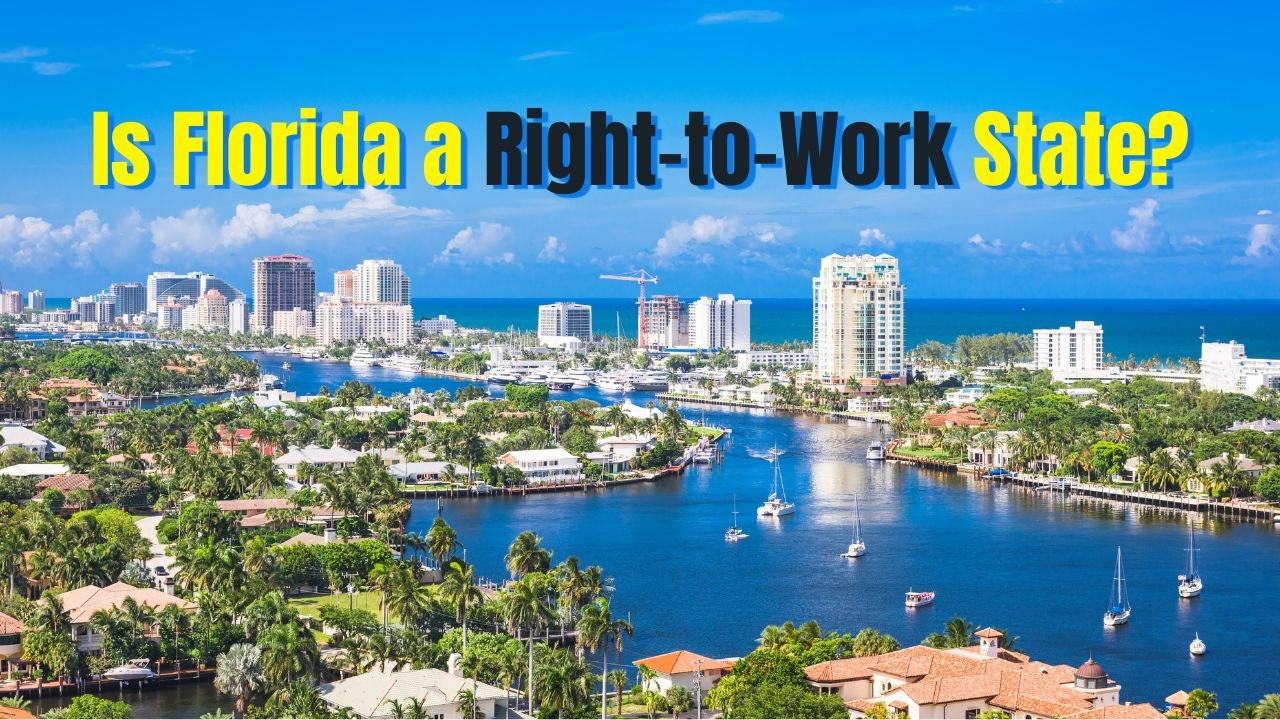Is Florida a Right-to-Work State?
Posted on : April 19, 2024 By Savan

Florida, known for its sunny beaches and vibrant culture, is also a state with a unique labor law: the right-to-work statute. But what does this term really mean, and how does it impact employees and employers? Let’s delve into the details.
Is Florida a Right-to-Work State?
Understanding ‘Right-to-Work law’
As reported by the National Conference of State Legislatures (NCSL), there are 27 ‘right-to-work’ states in the United States, and Florida is one of them. In fact, Florida was one of the country’s first states to adopt this law back in 19431. But what exactly does it entail?
What Is a ‘Right-to-Work law?
The term itself can be a bit misleading. Contrary to what the name suggests, ‘right-to-work’ laws do not guarantee everyone an inherent right to employment. Instead, these laws primarily relate to labor unions. In a right-to-work state like Florida, an individual worker cannot be compelled to join a labor union as a condition of keeping their job. This means that employees have the freedom to choose whether or not to become union members1.
The Freedom of Association
Supporters of ‘right to work’ laws argue that they uphold the freedom of association. They believe that workers should not be forced into union membership against their will. On the other hand, critics, including many employee interest groups, contend that these laws create a “free-rider” problem. Essentially, when workers benefit from union negotiations and protections without paying union dues, it undermines the collective bargaining power of unions.
Differentiating ‘Right-to-Work’ and At-Will Employment
While ‘right-to-work’ and at-will employment are often linked in discussions, they are distinct concepts. Florida is not only a ‘right-to-work’ state but also an at-will employment state. Here’s the difference:
- Right-to-Work law: This pertains to union membership. In Florida, an employee cannot be forced to join a union to keep their job.
- At-Will Employment: Under this standard, both employers and employees have the right to terminate the employment relationship without cause. Unless there’s a specific employment agreement stating otherwise, an at-will employee can be fired without reason, and they can also leave their job without notice.
Can Employers Fire Workers for Any Reason?
No, Florida’s ‘right-to-work’ law doesn’t mean employers can fire workers arbitrarily. However, the at-will employment standard grants businesses broad discretion. Employers can terminate workers for various reasons, even without cause. But there’s a crucial caveat: Employers cannot fire someone for illegal reasons, such as racial discrimination, retaliation, or other unlawful motives. If you believe you were wrongfully terminated, you have the right to seek legal recourse1.
Conclusion
Is Florida a Right-to-Work State? Florida’s ‘right-to-work’ status reflects its commitment to individual choice regarding union membership. As you navigate the Sunshine State’s job market, remember that while you have the freedom to work without union obligations, your employment relationship remains subject to the broader principles of at-will employment.
Share this articlePosted on : April 19, 2024 By Savan
Join Our Club

"Stay Informed, Stay Ahead – Join Our Club Today!"



















